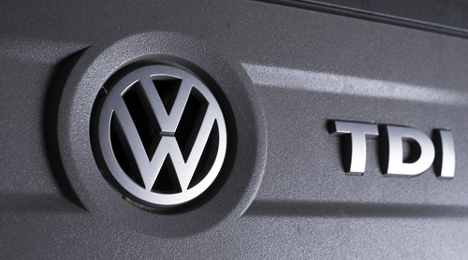VW CEO says TDI fixes incoming

By subscribing, you agree to receive communications from Auto Remarketing and our partners in accordance with our Privacy Policy. We may share your information with select partners and sponsors who may contact you about their products and services. You may unsubscribe at any time.
CARY, N.C. –
Matthias Mueller, Volkswagen AG’s chief executive officer, rallied the OEM's workforce on Tuesday, announcing to a group of over 20,000 employees at VW’s Wolfsburg, Germany plant that a plan is in the works to remedy the company’s recent diesel emissions scandal.
With a focus on regaining trust and transparency, a news release from the automaker said Mueller told his employees, referring to the group’s various international badges, “in this situation, where we are dealing with four brands and many model variants, care is even more important than speed.”
According to Mueller, the remedies for its customers, whom he says should hear from the company “over the coming days” if their vehicles are affected, have currently been drawn up and will “shortly” be presented to “responsible authorities.”
“In many instances a software update will be sufficient,” Mueller said. “Some vehicles, however, will also require hardware modifications. We will keep our customers constantly informed about the measures and arrange workshop appointments.”
How will fixes affect VW’s reputation?
Mark Dotson, a professor at the Western Michigan University Cooley Law School, said in an analysis from the unversity last week that beyond legal issues, VW’s reputation will rely heavily on how they fix the emission issue.
Subscribe to Auto Remarketing to stay informed and stay ahead.
By subscribing, you agree to receive communications from Auto Remarketing and our partners in accordance with our Privacy Policy. We may share your information with select partners and sponsors who may contact you about their products and services. You may unsubscribe at any time.
“Depending on Volkswagen’s fix, assuming the company can remove the emission problem with a modification, then exposure and liability will turn to how satisfied the customers are with the vehicle,” Dotson said. “This will be a test of consumer confidence with the company and its products.
“No doubt there will be class action lawsuits brought on by consumers emphasizing the fraud,” Dotson continued. “Damages on this could range from costs associated with additional emissions testing, decreased value of the vehicle due to the perception that the cars are environmentally unfit, to punitive damages because of the fraud. If there is one area of law, even though the loss here is economic in nature, where courts are most willing to impose penalties, whether by a jury’s determination or pursuant to a statutory consumer protection scheme, it is when it comes to fraud.”
While VW’s diesel range is much simpler in the United States than its counterparts across the pond, it’s still up in the air whether VW will take the less expensive route, employing a software adjustment that will cause the affected TDI engines to meet EPA emissions requirements at the expense of fuel economy and engine performance, or a more costly route by physically modifying the engines with something like urea injection that would help reduce NOx emissions.
“The software change is the least costly option for Volkswagen at this point, and has the potential to affect performance and fuel economy more than the more expensive route of adding urea injection,” noted Matt DeLorenzo, managing editor at KBB.com, in an analysis last week. “I find the use of the word refit interesting, as it implies a hardware change, whereas I think they will be updating the engine control module software to make the engine run in the compliant test mode all the time. The other question is whether or not the refit includes any changes to the catalyst itself to make it more robust.”
According to comments from Fitch Ratings last week, taking the less expensive route could result in much lower resale values and bolster owners’ civil cases against VW and extend the company’s reputational damage. While recalls have historically only affected used-car values in the U.S. for short periods of time, VW’s situation is unique: according to Fitch, “It remains to be seen whether the impact on used-car values could be greater because VW’s actions are being thought of as deceptive.”
Please continue to follow further iterations of Auto Remarketing in both print and digital editions as we continue to follow the political, financial and reputational impact of the developing situation with Volkswagen.


